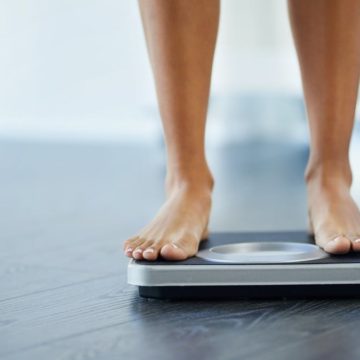
- Weight can fluctuate daily.
- Several factors like food, sodium intake, meal and sleep time, and exercise type affect weight fluctuation.
- PMS can also cause weight fluctuation.
Weight can fluctuate every day. According to Amanda Foti, a senior dietitian at Selvera Weight Management Program, weight fluctuation is a normal day-to-day occurrence. Anyone can see their weight fluctuate many times in a day. She adds that regardless if people exercise and eat healthily, they will still experience this fluctuation. Dana Hunnes, senior dietitian at UCLA Medical Center, explains that gaining actual 5 pounds in a day is not possible, but retaining 5 pounds of fluid in the body can happen.
Here are what dietitian suggests why you experience weight fluctuations.
1. You do not follow a regular weighing time and day.
Hunnes explains that people weigh heavier by 5 to 7 pounds at night time than during the day. There are two reasons why this happens. One is that all the salt you have consumed that day has built up. Another reason is that the food and drink you have consumed may not yet have been fully digested and excreted. On the other hand, Hunnes adds that you weigh the least early in the morning after you have used the bathroom. So she recommends weighing yourself naked right after you wake up to get your most accurate and truest weight.
2. You consumed more salt than normal.
Consuming more sodium will result in water retention. Foti shares that there are many reasons why the body retains water, but too much sodium intake is the most probable reason. Also, mild dehydration can be a cause for fluid retention in the body. As a solution, Foti recommends drinking more water to flush the excess sodium and help the body efficiently get rid of body fluids.
3. You have not excreted the food you ate.
If you have not excreted what you ate throughout the day, you may not only feel and look bloated, but you will also gain a few pounds. Not until you empty your bowels will you see a decrease in your weight. So stay hydrated, eat enough fiber, and keep active for you to have a regular bowel movement.
4. You have eaten too many carbs.
Eating too many calories beyond your needs can result in more fat and excess water retention. Foti explains that one gram of carbohydrate retains three grams of water with it.
5. You are about to have your monthly period.
Hormones can also play a role in weight fluctuations. Changes in your hormones during your monthly period can lead to fluid retention. As to Foti, you may start noticing period-related weight gain five to seven days before your period, and it goes away around the third or fourth day of your period. Weight gain during your period is usually about 2-8 pounds.
6. You are taking pills or medicines that have a fluid-retention effect.
Several medications list weight gain as one of their potential side effects. It is because of hormonal changes causing an increased appetite and taking in more calories. In the case of steroids, it can cause water retention, which leads to weight gain. Foti explains that water retention related to steroids can be observed in the extremities, like having puffy feet and hands.
Source: Self
